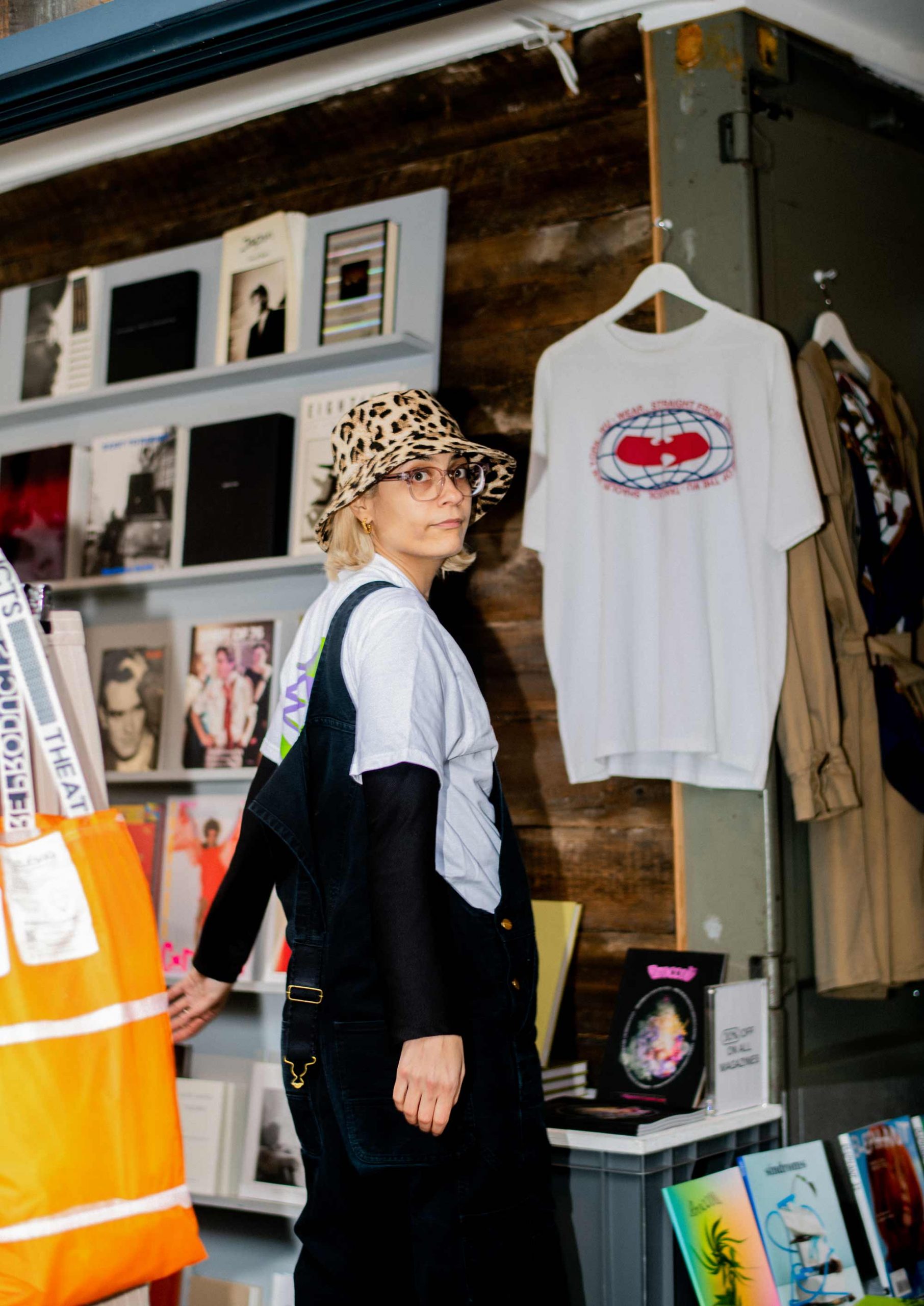Benevolent Brands
“The world doesn’t need more clothes,” declares one brand which is most certainly in the business of making more clothes. “Buy Better, Wear Longer,” advises a $4.5billion denim giant with 50,000 retail locations which saw its e-commerce business grow by 29% last year.
The concepts of sustainability and overconsumption have been adopted into the lexicon of marketing, and you don’t have to look hard to find a brand Instagram which echoes the aesthetic and parlance of an activist platform. Brands too worry about the climate crisis and waste and human rights, and they want us all to shop ethically to help them fix the problems.
Individual action has been completely co-opted
Thankfully for said brands, they always just so happen to be the ethical option. Shopping with them means diverting from landfill, supporting women, saving water, planting trees. But of course, it still means shopping, and for Sian Conway-Wood, author of Buy Better, Consume Less, Create Real Environmental Change, that’s the problem.
Distraction Tactics
“Part of my motivation for writing the book was to highlight how individual action has been completely co-opted,” she says. “When we approach this purely as consumers, we’re still in the consumer mindset that we can shop our way out of this, and we’re very vulnerable to greenwashing and advertising messages.”
Consumer movements are nothing new – the conscious consumers of the 18th century bought ‘slave-free’ sugar – but the current focus on individual, consumer action has much to do with the concept of the personal carbon footprint, which was first devised by PR firm Oglivy & Mather, in the employ of BP. The oil giant launched its carbon footprint calculator in 2004, and since then our awareness of our impact as individuals has skyrocketed, clouding the necessity of systemic, top-down change. Catching onto this, brands began to centre individual action – personal ethical consumption – within their marketing.
“One difficulty can be that companies can present these corporate social responsibility type policies and [promote] ethical shopping, and that can be a distraction,” says Ruth Ogier, Head of International Programmes at War On Want. However, Ogier is not totally disparaging of ethical consumption as a way for individuals to seek change. “I think the movement can be helpful in getting people to think about the implications of the amount that we are encouraged to buy,” she says. “It’s about understanding ourselves not just simply as the people that purchase these products. Activism is in individual choices, but it leads into a much more politically aware voice.”
The First Step
While the way in which brands promote ethical consumption is often a strategy to evade tougher action such as legislation and industry regulation, Liv Simpliciano, Policy & Research Manager at Fashion Revolution, believes it is a crucial piece of the puzzle in affecting wider change.
“Whilst changing individual consumption habits alone is not enough, without this, other important factors of industry and policy change cannot fall into place,” she says. “I don’t think discussions around changing your shopping habits at an individual level and the need for wider system change should be held separately and viewed as mutually exclusive. If many individuals change their habits, that becomes a collective.”
Although criticised as individualistic, ethical consumption offers a familiar entry point into activism. Like it or not, we are shaped by consumption on many levels. We shop to find our identity and consume to answer our emotions, hence it becomes the most obvious focus for change.
If many individuals change their habits, that becomes a collective
Still, with our climate at a crucial tipping point, it is untenable for humanity to continue to consume at its current rate, begging the question whether any consumption is, ultimately, ethical. Overconsuming products that are made under slightly different conditions is certainly not going to solve the problem, but considering, for example, the human rights of the workers who make the products does create a cultural desire for change which is vital in converting the individual to the political.
“I think you have to be in the mindset of an activist to buy better. You think, ‘actually, I am fed up with the status quo, I want something to change, and I’m going to do what I can with what I’ve got to make that change’”, says Conway-Wood. And it’s from that first step that we may move onto signing petitions, supporting strikes, emailing brands, contacting MPs, and attending protests. It awakens in us a realisation that, as Ogier says, we have a right as citizens to hold companies to account.
Unify, Don’t Divide
However, the activist foundations of ethical consumption are eroded when it becomes the only marker of caring or not. “Choices we make about what we wear, for example, can be in some ways a judgment that divides,” says Ogier. “If we say people who buy this cheap fashion are bad, but if you buy this you’re good, that doesn’t help us at all because all it does it alienate the very class of people that are directly affected and fails to bring them on board in a struggle that is as much theirs as anyone else’s.”
Overconsumption and billion-pound brands aren’t upheld by people living in poverty or the working class, but by those with higher disposable incomes who buy cheap but buy often. It’s disingenuous to insinuate that any criticism of cheap, unethical brands is a wholesale criticism of people who shop with them because it’s what they can afford. However, equating buying ‘unethically’ out of necessity with simply not caring is exclusionary and defies the collective approach needed for change to happen.
“For individual actions to become collective ones, it’s absolutely vital we build strong community bonds so that we can feel motivated, held, and encouraged to go further and wider in our commitments to be better,” says Simpliciano.
One Part of a Bigger Movement
Shopping ethically – whether buying differently or buying less – isn’t enough on its own to tackle the climate crisis, human rights violations, or the litany of other issues overconsumption has caused. If it were, we’d surely be a lot further along the path to progress now. But that doesn’t mean it’s not worth doing. Deleting that marketing email and repairing instead of buying new, caring about who made a product, or supporting local businesses are tiny acts of resistance and help us envisage ourselves as part of a wider struggle.
It’s absolutely vital we build strong community bonds
If we value creativity and community over consumption, loosening the clutches of capitalism in the process, we’re all the better for it. But we cannot forget where the real responsibility lies: brands and government. Brands have the resources to make systemic change happen, while governments have the power to mandate them.
The perfect ethical shopper doesn’t exist while there is no political will to entirely overhaul production and consumption as we know it, prioritising workers and the environment over profit and growth. So, while we search the aisles for a certified organic product or spend hours reading through a brand’s code of conduct, we must remember that our individual choices are not the solution, but a small part of a bigger, collective movement.
Read More: A Fashion Industry Roundtable






